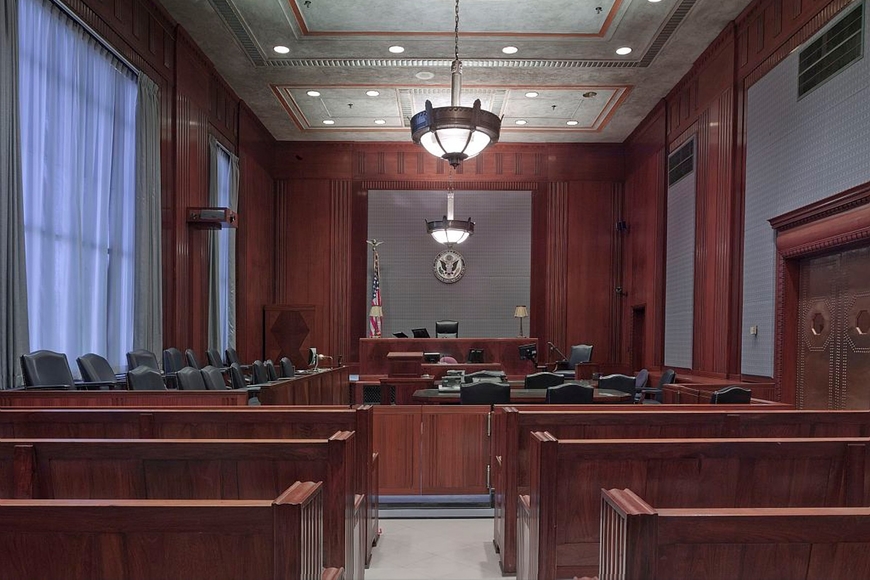Roundtable: How employers are using market power to underpay workers
301 19th Ave S
Minneapolis,
MN
55455
Join us for a discussion of the economic research behind, and the legal and policy implications of, the newly released Merger Guidelines.
In late 2023, the Federal Trade Commission and Department of Justice revised their Merger Guidelines, and lowered the threshold for labor market concentration, making clear that the labor market concentration is going to be an important factor in antitrust policy going forward. University of Minnesota economist Kyle Herkenhoff and Eric Posner, University of Chicago professor and legal scholar, used economic modeling to inform policy development related to the worker welfare implications of the new 2023 Merger Guidelines.
According to their research, roughly 10% of markets in the U.S. are “single-firm markets,” meaning one company controls the jobs in that region. Additionally, in those single-firm markets, they find that workers are paid roughly 30% less than competitive wages and that monopsony power is pervasive across American industries and cities. Our panelists will discuss how implementing lower concentration thresholds for merger reviews, as outlined in the 2023 guidelines, can effectively curb monopsony power in labor markets. By implementing a more stringent merger policy, policymakers can promote increased competition within labor markets and pave the way for improved wages and job opportunities for workers.
Moderated by Stacey Slaughter, a partner and co-chair of the Antitrust and Trade Regulation Group at Robins Kaplan LLP, this event brings together economic research, legal theory, and real world antitrust expertise to focus on the future of mergers and antitrust regulations. Don't miss this crucial discussion on the role of antitrust enforcement in shaping the future of labor market competition and advancing worker welfare.
Join us after the roundtable for a reception and a poster session featuring research conducted by the 2023-24 HHEI Undergraduate Research Assistant program.
Panelists:
Kyle Herkenhoff is an associate professor of economics at the University of Minnesota, where he has taught since 2014. Kyle is also a consultant at the Federal Reserve Bank of Minneapolis, where he previously held positions as a senior economist and visiting scholar, and he has also served as a visiting scholar at the Federal Reserve Bank of Philadelphia’s Consumer Finance Institute and a senior economist at the Federal Reserve Bank of New York.
Kyle received his B.A., M.A., and Ph.D. degrees from the University of California, Los Angeles. His research centers on macroeconomics, labor economics, and consumer finance. Kyle’s work has appeared in the American Economic Review, the Journal of Monetary Economics, and the Review of Economic Studies. Kyle is also a research fellow at the Institute for the Study of Labor and the National Bureau for Economic Research.
Eric Posner is Kirkland and Ellis Distinguished Service Professor of Law, University of Chicago. From 2022 to 2023, he was counsel to the Assistant Attorney General for the Antitrust Division in the Department of Justice. His books include How Antitrust Failed Workers (Oxford, 2021); The Demagogue’s Playbook (All Points Books, 2020); Radical Markets (Princeton, 2018) (with Glen Weyl); Last Resort: The Financial Crisis and the Future of Bailouts (University of Chicago Press, 2018), and many others. He is a fellow of the American Academy of Arts and Sciences, and a member of the American Law Institute.
Moderator:
Few lawyers have done more to champion the rights of consumers, businesses, and investors who have been harmed by anticompetitive conduct, fraud, and negligence than high-stakes litigator Stacey Slaughter.
Ms. Slaughter is a member of the executive board and co-chair of the Antitrust and Trade Regulation Group at Robins Kaplan LLP with decades-long experience in consumer class action litigation, complex commercial litigation, antitrust litigation, and securities and financial markets litigation. The cases Ms. Slaughter has litigated have recovered more than $6 billion for victims of deceptive or unlawful conduct, and have included some of the largest, most high profile, and most innovative cases affecting financial markets and arising under federal securities laws and antitrust laws. At home in the courtroom, Ms. Slaughter has litigated numerous cases to trial, arbitration, and resolution, with experience in courts and arbitration forums around the United States.
Ms. Slaughter is an active member of the Federal Bar Association and serves as co-chair of the Minnesota Chapter’s Class Action, Mass Tort, and MDL Subcommittee. She is also active in the American Association for Justice, the American Bar Association, and in Twin Cities Diversity in Practice. Ms. Slaughter runs a pro bono legal clinic for the Jeremiah Program, a nonprofit organization that supports single mothers who are earning a college degree and provides early childhood development opportunities.
Among her many recognitions, Benchmark Litigation has recognized Ms. Slaughter as a “Litigation Star (2020-2022), The National Law Journal as one of its “Elite Women of the Plaintiff’s Bar” (2020), and Super Lawyers as a “New York Super Lawyer” (2015-2021).
For those attending for CLE Credit:
We have approval for 1.5 hours of Standard credit with Mandatory Continuing Legal Education boards in Minnesota. Those seeking credit must register for the event and attend either online or in person. A sign up sheet will be available at the in-person roundtable.
At this time, we will not seek CLE credits for IL. But per MCLE of the of Illinois, an attorney seeking CLE credit in IL and attending the roundtable (qualifying live out-of-state course) will have the opportunity to apply for IL CLEs. Please see attached pdf, item 3.b. Illinois will require written material to be submitted to request CLE credits.
